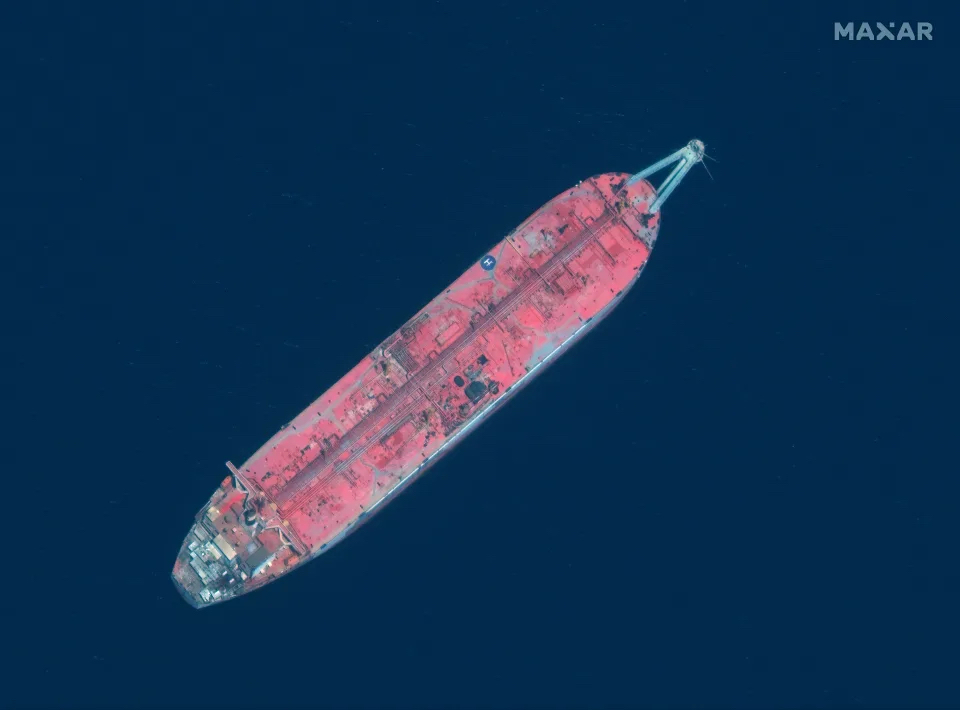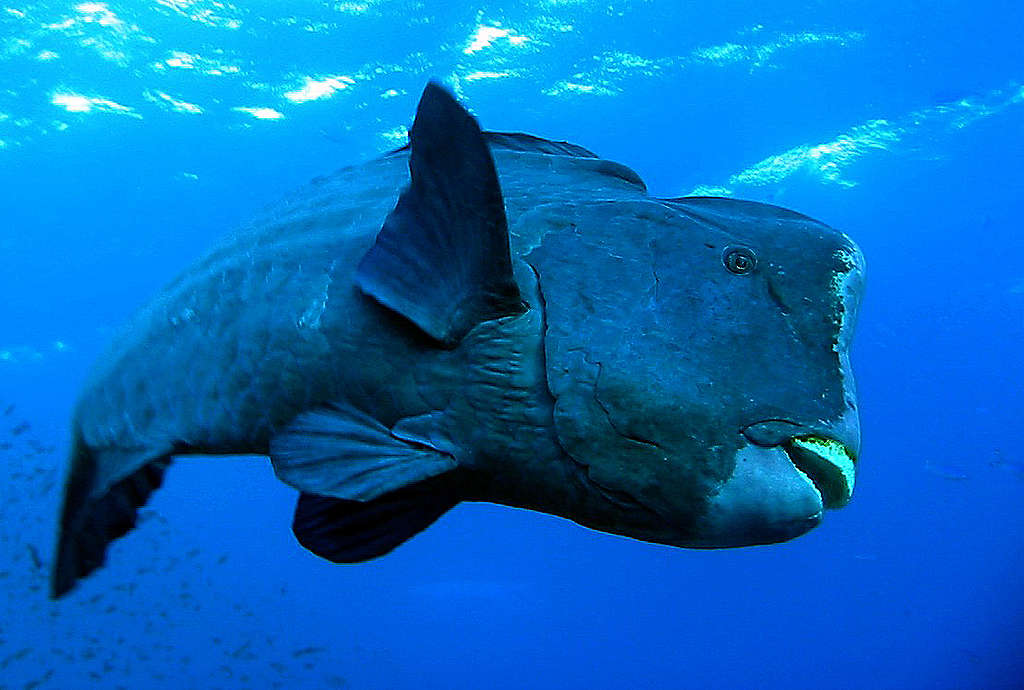
FSO-SAFER: A ticking time bomb
The giant Floating Storage and Offloading (FSO) facility called the FSO SAFER is moored off the coast of Yemen, in the Red Sea, where it has been left unattended since 2015.
The war in Yemen, which has caused the world’s worst humanitarian catastrophe and practically stopped the day-to-day functioning of the state itself, has made it impossible for SEPOC, the company that owns the FSO SAFER, to maintain the vessel safely. All production and export operations related to FSO SAFER have been suspended, but an estimated 150,000 MT (nearly 1.1 million barrels) of crude oil remain onboard.
A rupture of the single-skin hull or an explosion could worsen the humanitarian crisis in Yemen and result in a humanitarian and environmental disaster, in a spill up to four times greater than that caused by the Exxon Valdez spill in Alaska in 1989. This would seriously exacerbate the humanitarian crisis, preventing access to the main ports of Hodeidah and Salif, vital for aid and food supplies, adding an additional burden to a country already devastated by six years of conflict.
Greenpeace launched a new study done by the scientific unit in the organization. It explains that in the absence of a quick solution, the ship could have devastating effects and countries should be prepared for that. It is necessary to deploy a floating barrier to contain the oil around the ship as a first step to prevent the expansion of the oil slick in the event of a leak. However, the floating barrier does not provide a solution to prevent the potential short- and long-term humanitarian and environmental impacts in the region, which can only be mitigated by removing oil from the ship.
Why it matters now
With each day that passes, efforts to remove the oil safely become more difficult because of the failing equipment. As things stand, the tanker could leak – or even explode – at any time and spill the oil it is carrying – hence the description of the FSO Safer as a “ticking time bomb.”
An oil spill in the Red Sea could trigger an environmental catastrophe that has the potential to destroy the limited livelihoods of Yemen’s poor coastal communities depending on fisheries, impact health, devastate nearby coral reefs, clog desalination plants that provide drinking water to millions of people in the region, and exacerbate the consequences of the Yemeni conflict.
The environmental impacts on the Red Sea’s fauna, corals and seagrass beds would also be catastrophic in a region which is a major biodiversity hotspot.
It’s not if – it’s when – and the impacts on people and the planet would be huge

People’s health at risk
The situation in Yemen has been described as the world’s worst humanitarian crisis with more than 24 million people – some 80 percent of the population – in need of humanitarian assistance. In the event of an oil spill, access via the main ports of Hodeidah and Saleef, vital for aid, food and fuel supplies, would be disrupted.
- 5.9 million people in Yemen and 1 million in Saudi Arabia would be exposed to very high pollution levels with harmful effects.
- There would be a significant health risk to vulnerable populations, such as adults and children with lung problems and adults with heart problems, and the elderly, with aggravation of pre-existing heart and lung problems likely. Air pollution from the spill could lead to an estimated increased risk of cardiovascular hospitalisation ranging from 5.8 to 42.0% over the duration of the spill.
- An oil spill could disrupt some 5,094 water well points supplying clean water for the daily use of 9.0–9.9 million people. It would also affect food supply for 5.7–8.4 million people and 93–100% of Yemen’s Red Sea fisheries. Additionally, oil could contaminate the desalination plants that are lined along the coast north of the Safer, thereby disrupting the clean-water supply to the region at large.

Ailing local economy
The amplitude of the potential economic impacts on local communities is huge.
- 50% of fisheries would likely be blocked from fishing by the oil spill, with a cost to the fishing industry of USD150 million – USD30 million per year for five years.
- The livelihoods of 31,500 fishermen would be at risk, and 235,000 workers in the fishing industry could lose their jobs, while the estimated loss in agricultural production could be USD4 million.
- The most recent figures (May 2021) identify 31,500 fishermen, 235,000 workers in the fishing industry affected; and 3.25 million farmers affected by crop loss.
- The Hodeidah and Saleef ports closed for 2.3 months causing food and fuel import shortages and a rise in food and fuel prices.

Threatened Red Sea fauna
The Red Sea is a major world’s biodiversity hotspot, hosting endemic species and sensitive habitats such as seagrass beds, mangroves and coral reefs and is particularly vulnerable.
The Red Sea is semi-enclosed, which makes oil recovery difficult, lengthy and costly, in particular given the ongoing conflict in Yemen.
- Coral reefs are locally impacted in the vicinity of urban and industrial centres from land-filling and dredging; port activities (damage caused by anchors, oil and waste water discharges); sewage and other pollution (causing localised areas of coral disease, poor recruitment, and excessive algae); and tourism (damage from anchors and recreational scuba divers).
- There is a regionally/internationally significant turtle nesting site on Mukawwar Island (Sudan). Of the 15 species of cetaceans known to occur in the Red Sea and Gulf of Aden two are listed as threatened, five are dependent upon conservation actions to prevent their listing as threatened, five are insufficiently known to assign a conservation status, and only three are Secure.
- The renewal time for the entire water body of the Red Sea is around 200 years.
- It is never possible to clean up oil once spilt in the environment, all that can be done is to contain the oil through the use of booms and remove it with skimmers and suction pumps.
- Even if a major response were possible, an oil spill could still prove extremely difficult to deal with without causing further physical or chemical damage to the local ecosystem.
What needs to happen
Greenpeace is currently working with organisations in Yemen and the region to identify and support a solution to remove the oil and prevent a major environmental and humanitarian catastrophe that could happen anytime, while preparing to respond in case of a major oil spill.
Given the political context and the ongoing conflict in Yemen, action by the United Nations (UN) and international community is critical to prevent an environmental and humanitarian disaster and ensure a swift solution to the FSO SAFER time-bomb is a priority in negotiations.
Our reliance on fossil fuels puts millions of lives at risk and this should change now
